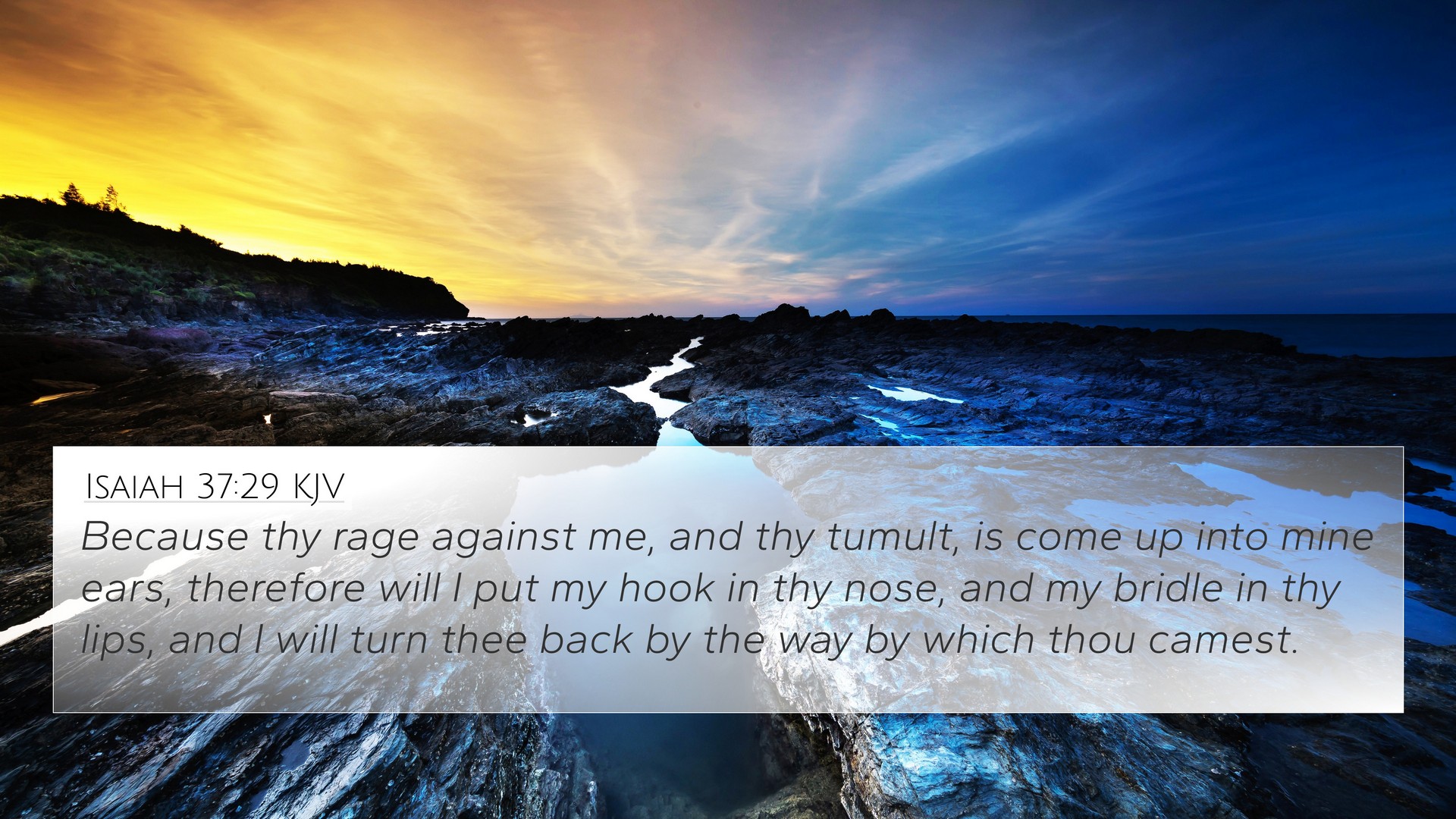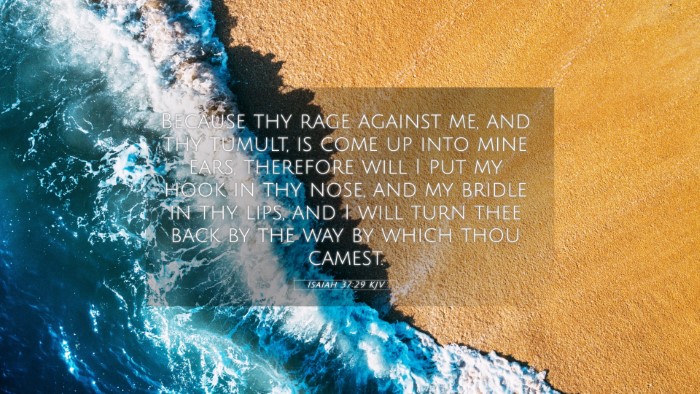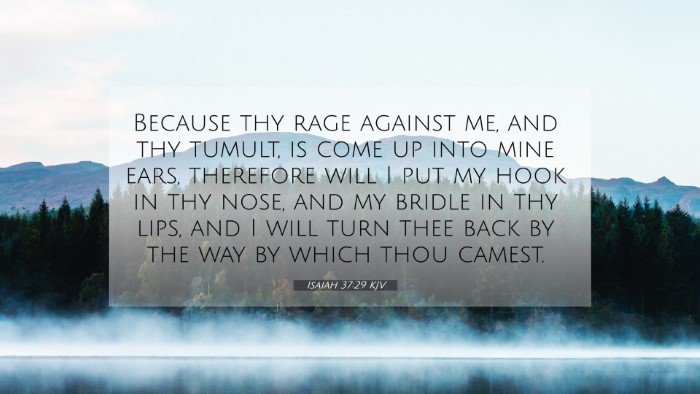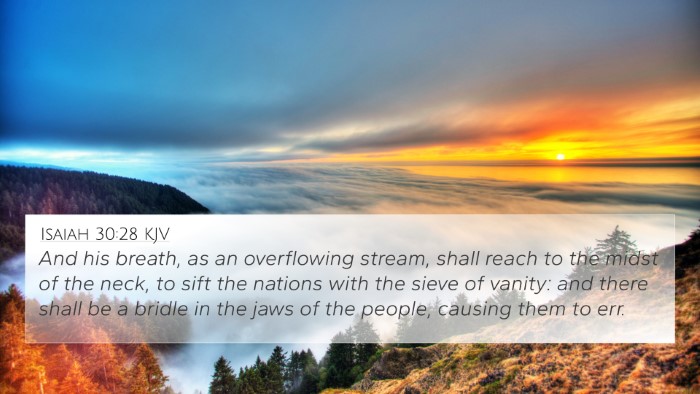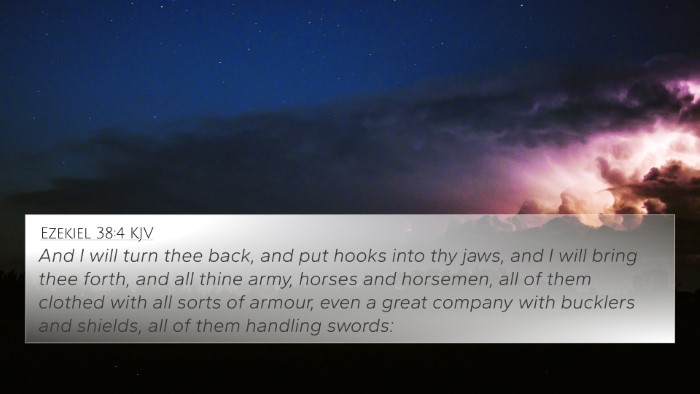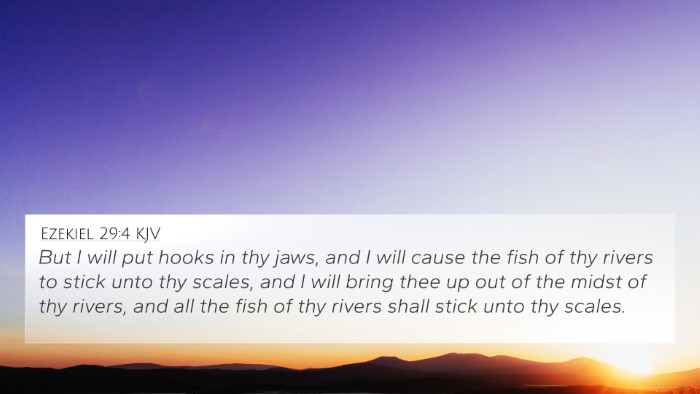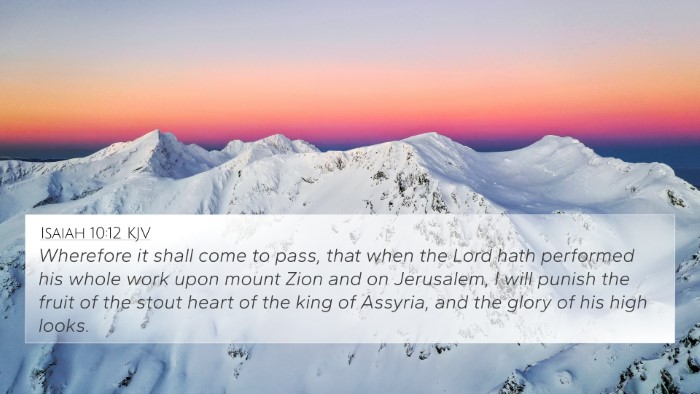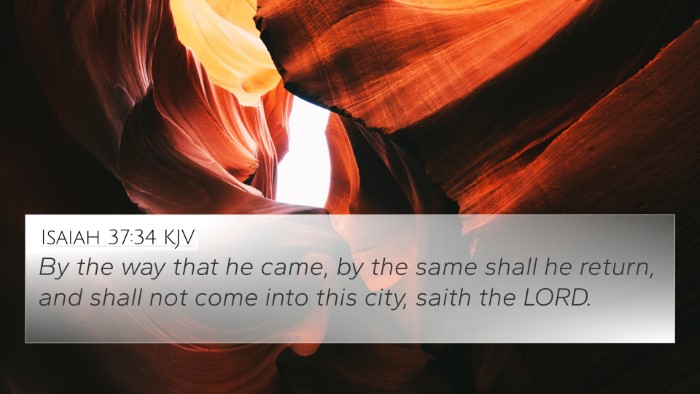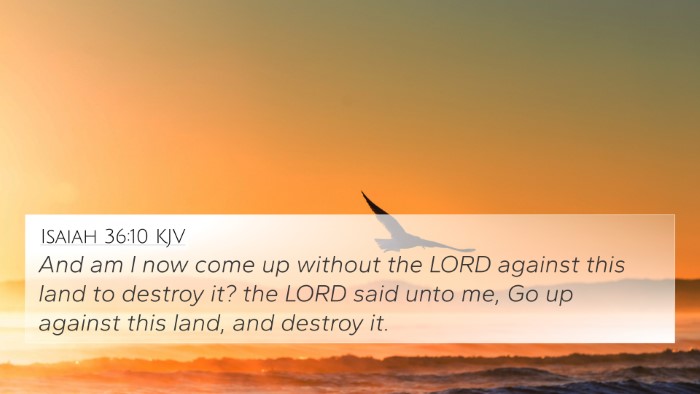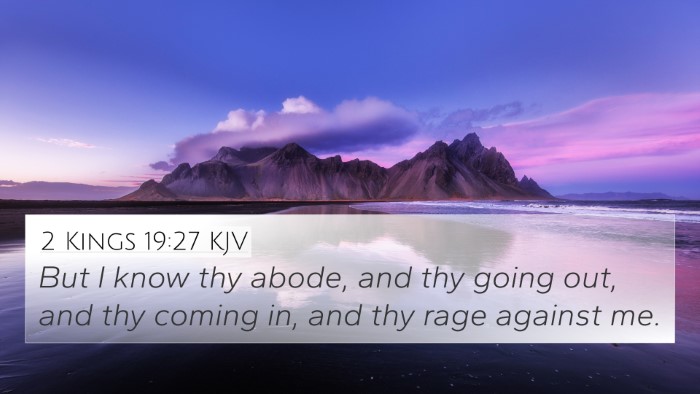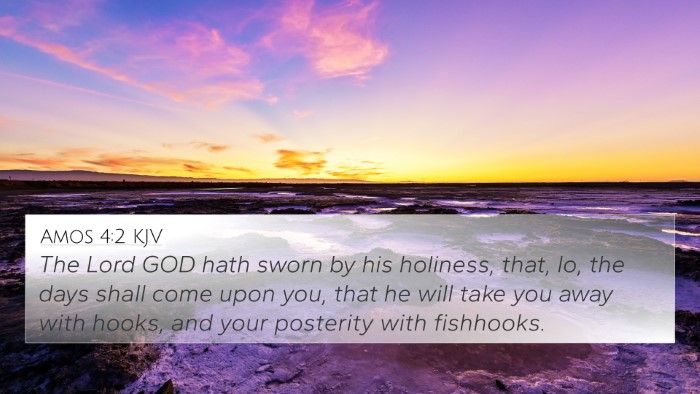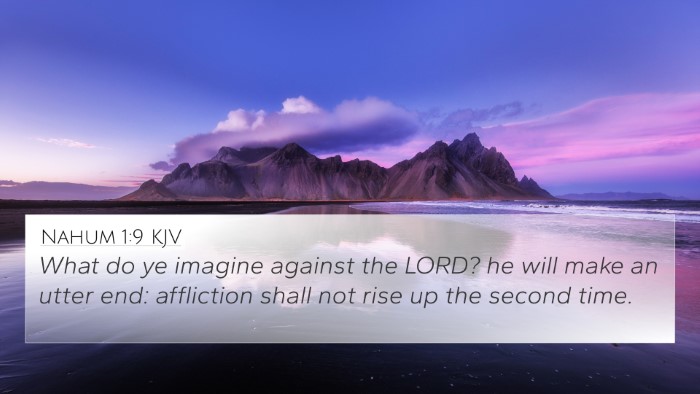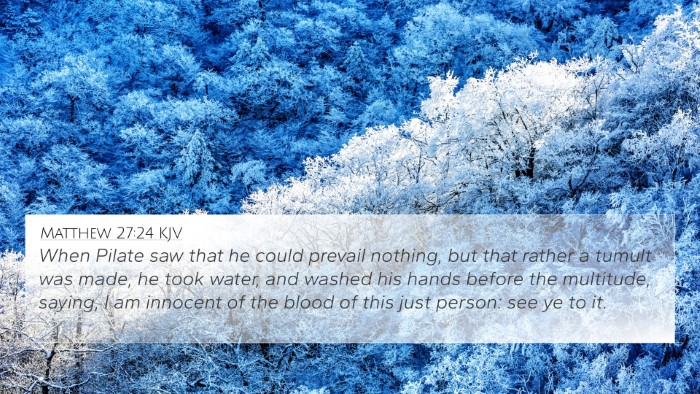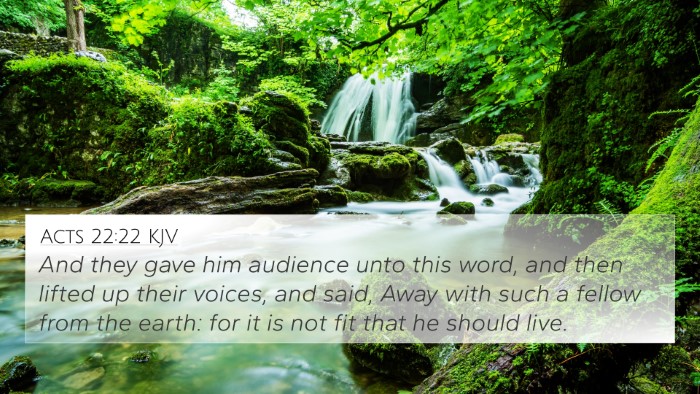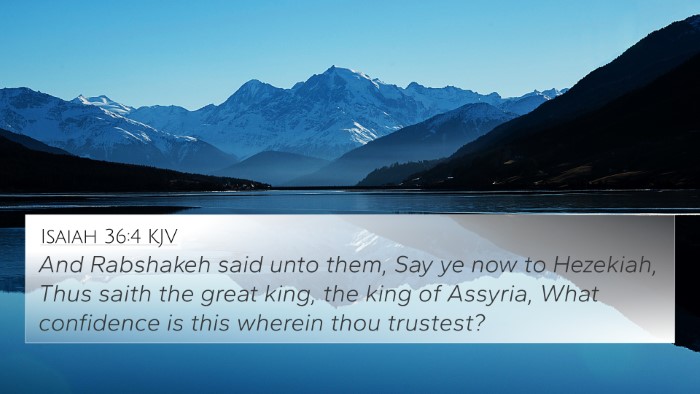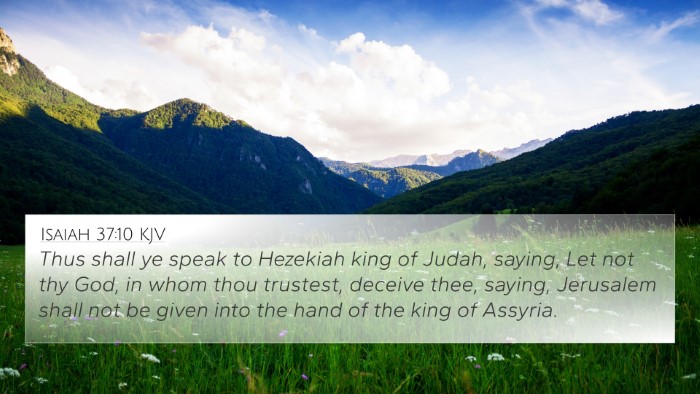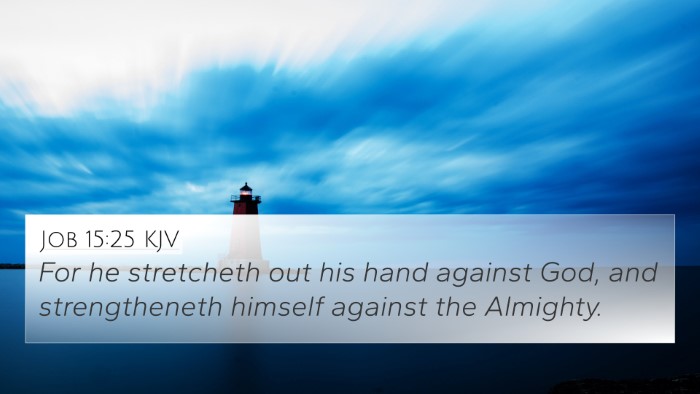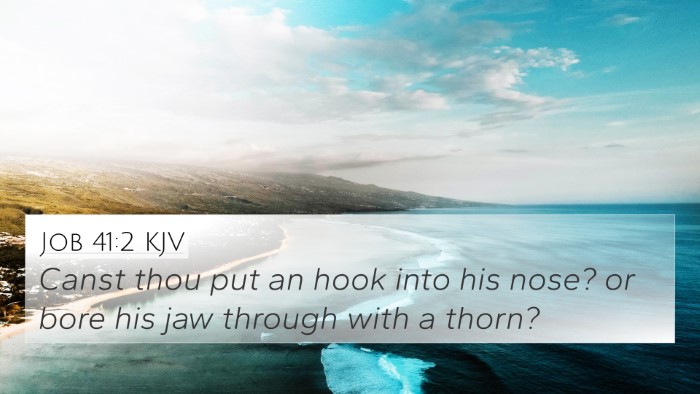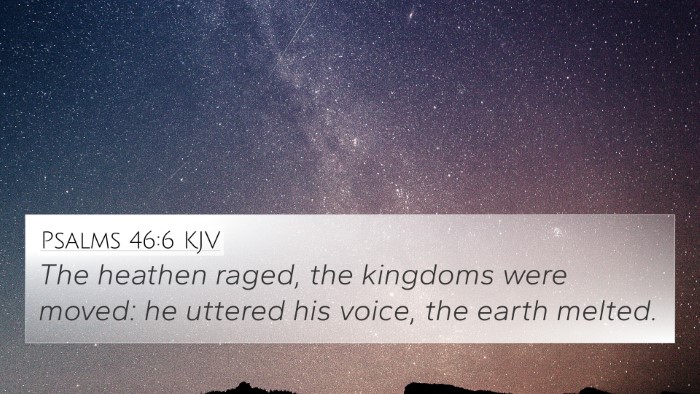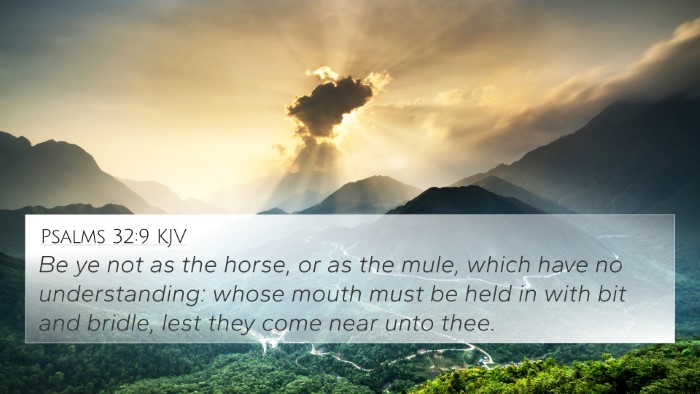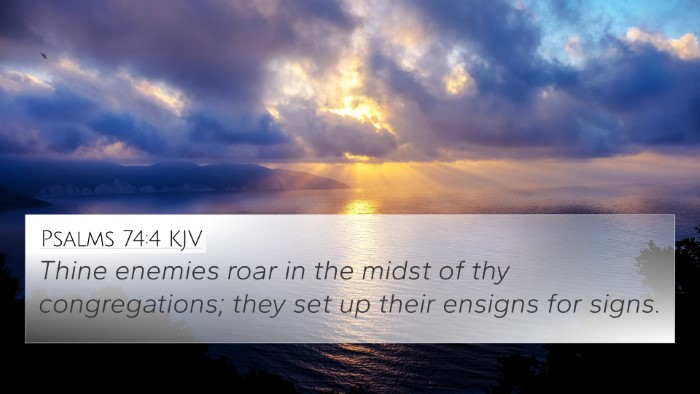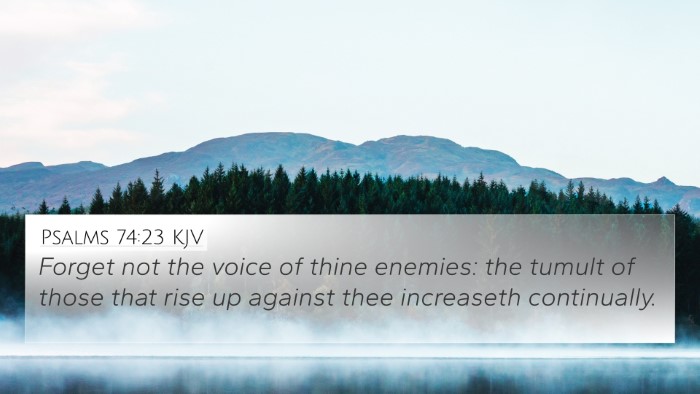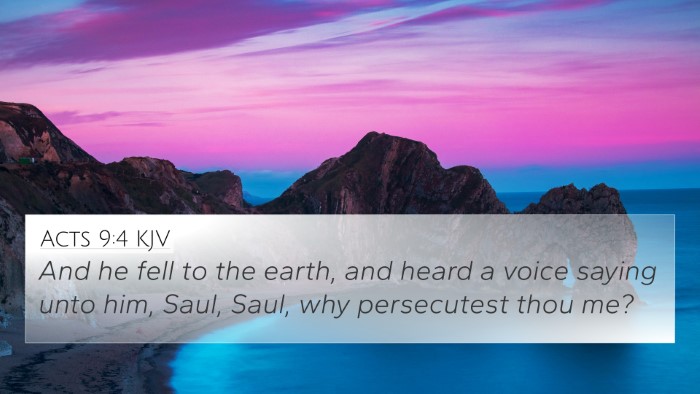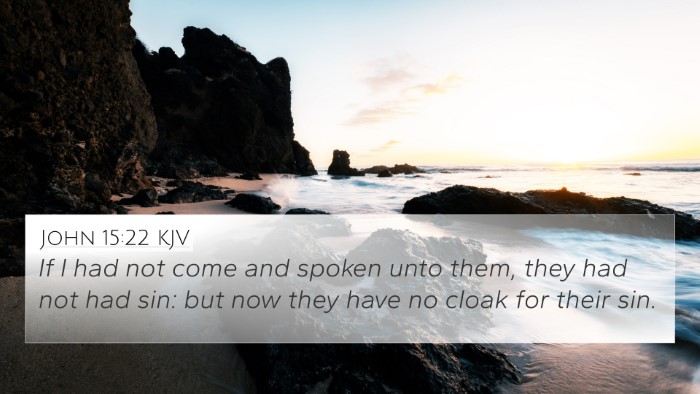Understanding Isaiah 37:29
Isaiah 37:29 states: "Because your rage against me and your tumult have come up into my ears, therefore I will put my hook in your nose, and my bridle in your lips, and I will turn you back by the way which you came." This verse captures the essence of God's judgment upon the proud and blasphemous words spoken by the Assyrian king, Sennacherib, against the people of Jerusalem.
Contextual Analysis
This passage occurs in a critical moment during the siege of Jerusalem, emphasizing the confrontation between divine authority and human arrogance. The Assyrian king's threats are met with a divine response, showcasing God’s power to humble those who defy Him.
Insights from Public Domain Commentaries
Matthew Henry highlights the certainty of God's intervention, indicating that while Sennacherib boasts in his might, he underestimates God’s sovereignty. Henry remarks on the imagery of hooks and bridles, symbolizing how God will lead Sennacherib back to where he came from, signifying ultimate defeat.
Albert Barnes expands on the metaphor used, noting that it illustrates God’s control over nations and rulers. Barnes suggests that this verse emphasizes God’s discipline through humiliating means, as the Assyrian king, in all his pride, will be forced to retreat, just as a captured animal is led by a bridle.
Adam Clarke comments on the prophetic nature of Isaiah’s words, encouraging the reader to see it as a direct challenge to earthly powers. Clarke emphasizes the theme of divine retribution, suggesting that this stands as a warning to all who would oppose God's will.
Thematic Connections
Isaiah 37:29 can be linked to several other biblical themes and verses that relate to the overarching narrative of God's sovereignty and human humility:
- Proverbs 16:18 - "Pride goes before destruction, and a haughty spirit before a fall." This verse resonates with the theme of humility and insight into the inevitable downfall of the prideful.
- Romans 12:19 - "Vengeance is mine, I will repay, says the Lord." This reflects the assurance that God will exact judgment on those who commit injustice.
- Psalm 2:1-4 - "Why do the nations conspire and the peoples plot in vain? The kings of the earth rise up and the rulers band together against the Lord and against his anointed." This emphasizes the futility of opposing divine authority.
- Isaiah 10:12 - "When the Lord has finished all his work against Mount Zion and against Jerusalem, he will say: 'I will punish the king of Assyria for the willful pride of his heart and the haughty look in his eyes.'" This serves as a direct parallel, reiterating God’s judgment on pride.
- Isaiah 14:13-15 - The fall of the proud one who sought to ascend heavenward, paralleling Sennacherib’s arrogance.
- 2 Chronicles 32:22-23 - Historical account of Sennacherib’s defeat, confirming the prophetic statement.
- Jeremiah 30:16 - "But all who devour you will be devoured; all your enemies will go into exile." This reaffirms the idea of divine justice against oppressors.
Cross-Referencing Biblical Texts
Cross-referencing Isaiah 37:29 with related passages enriches our understanding of its meaning and implications. Through scriptural cross-referencing, we can see how this verse fits into the larger narrative of Scripture regarding the results of pride and the consequences of antagonizing God.
Tools for bible cross-referencing can facilitate a deeper study. Various bible reference resources such as bible concordance and bible cross-reference guides can help individuals or groups explore thematic connections and similarities between related verses.
How to Use Bible Cross-References
Learning to identify connections between Old and New Testament verses can enhance one's understanding of scriptural themes. For example, the intertwining of God's judgment through prophets in the Old Testament and the pronouncements of Jesus establishes a cohesive narrative thread.
In summary, Isaiah 37:29 is not just a historical statement but a profound commentary on divine authority in relationship to human pride. It serves as both a warning and a comfort—a promise that God’s purposes will prevail, and no earthly power can stand against Him. By engaging with cross-references, readers can explore related themes, understanding how throughout the entire biblical text, the consistency of God's character and His dealings with humanity are made evident.
Conclusion
Isaiah 37:29 encapsulates a pivotal moment in biblical history, providing a deep lesson on the fate of the arrogant. Through both historical and prophetic lenses, it encourages believers to reflect on the nature of God’s righteousness. The assurance that God will act decisively against those who oppose Him resonates throughout scripture, making it a cornerstone for understanding divine justice.
